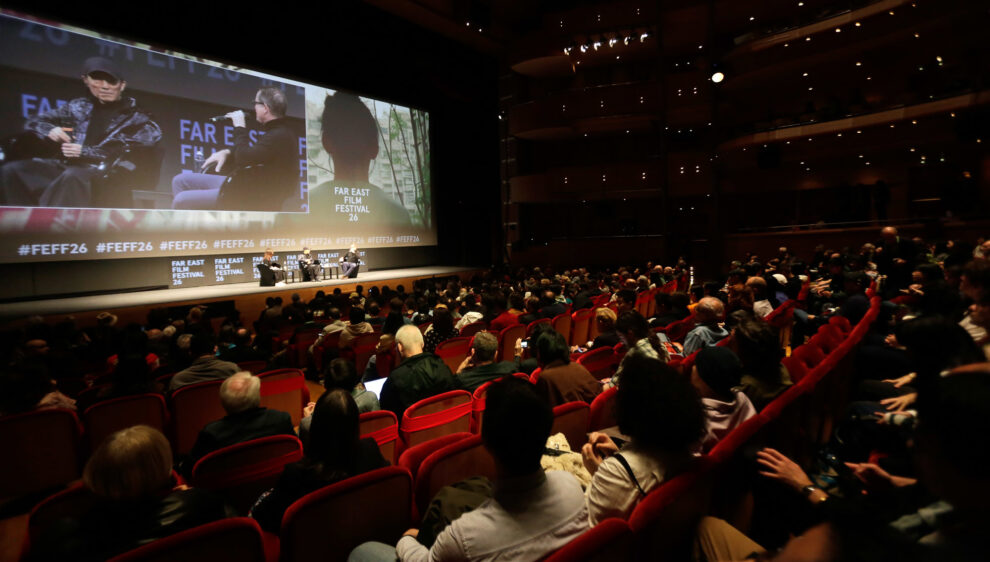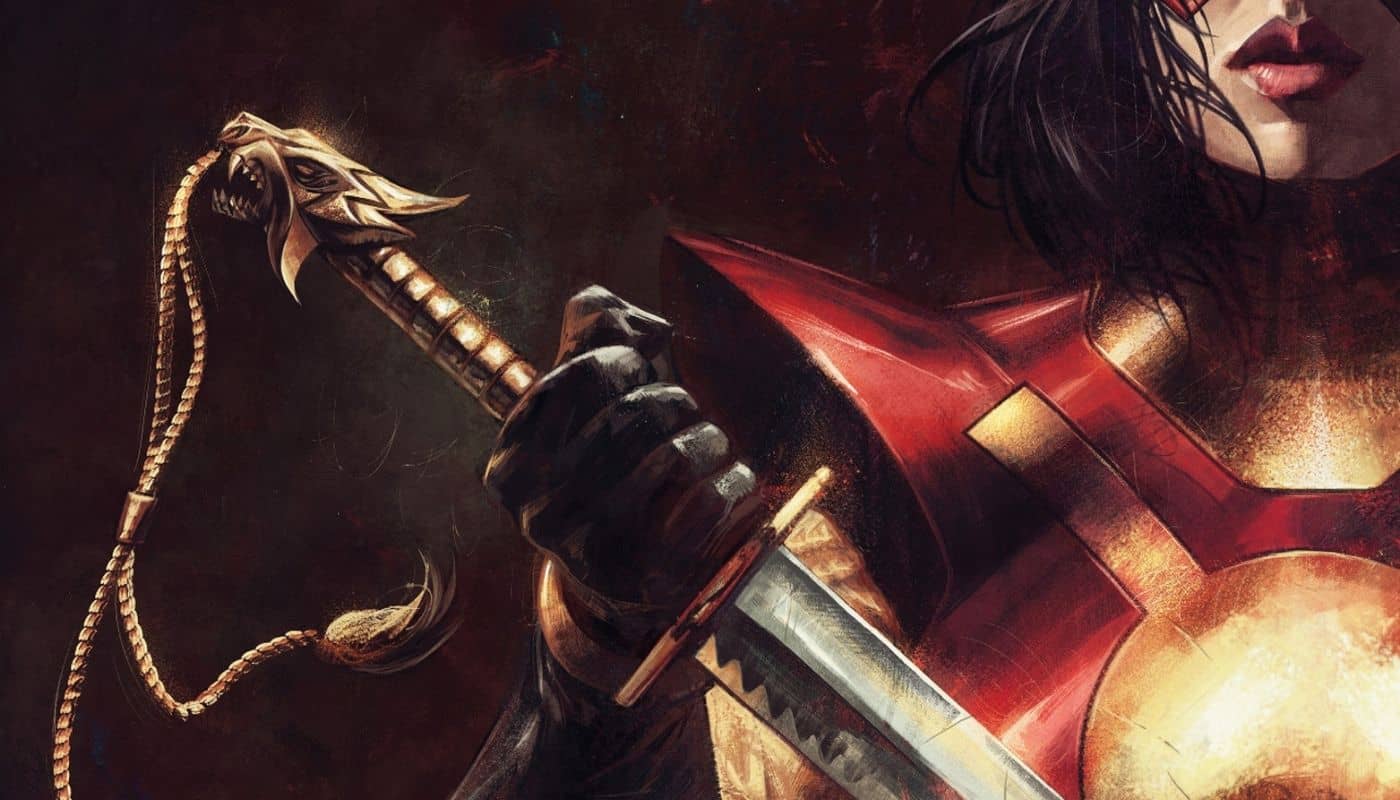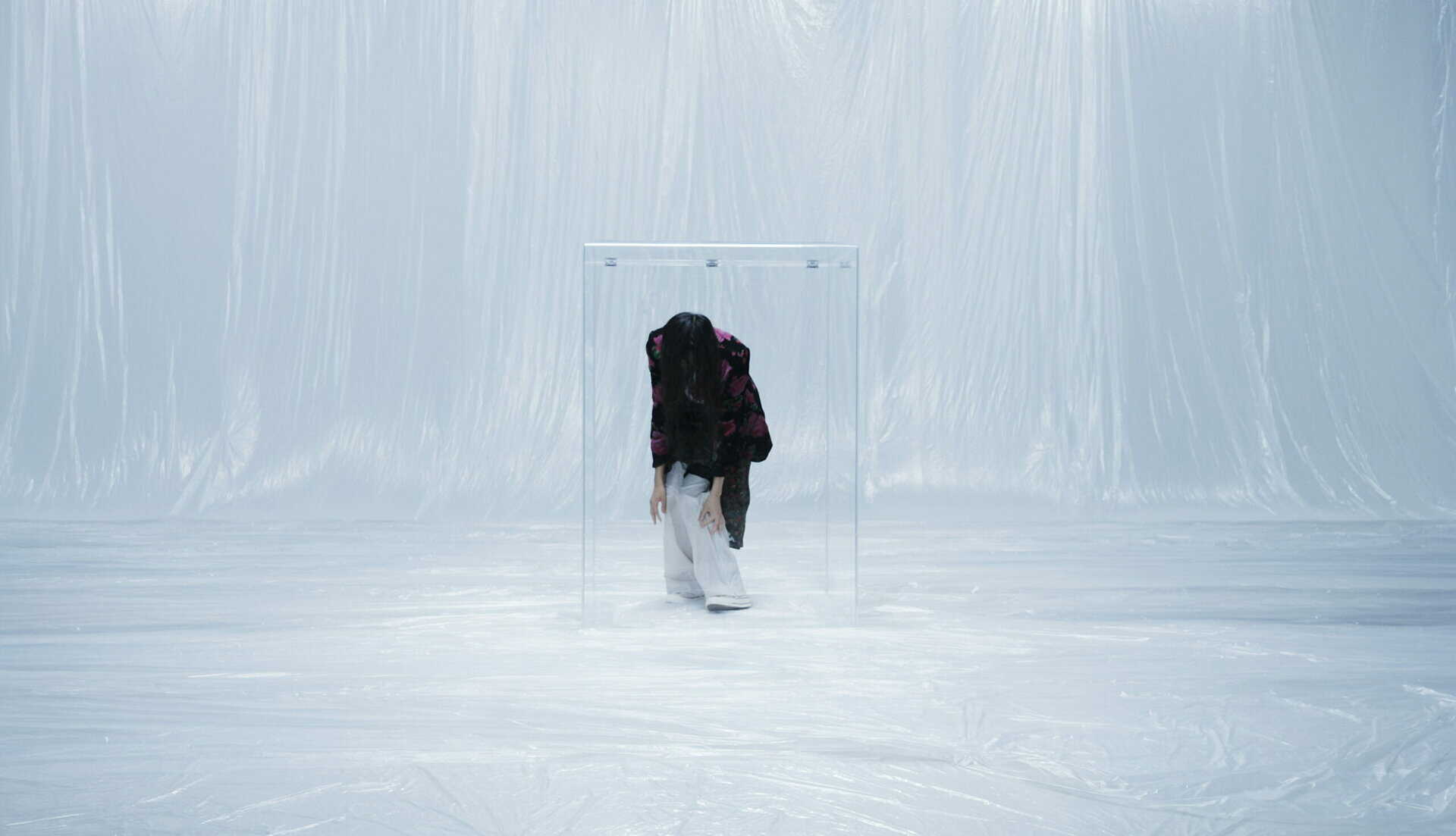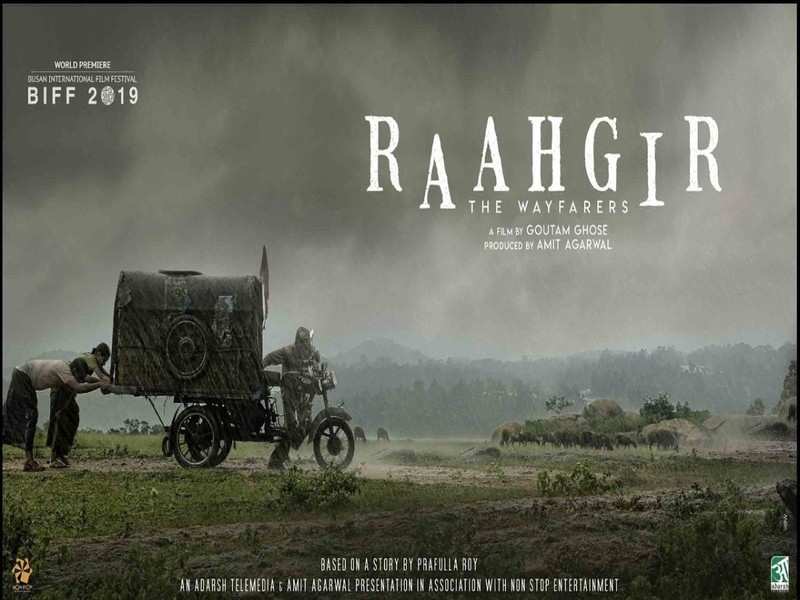75 films from 12 countries (more precisely, 12 world premieres, 22 international premieres, 23 European premieres and 19 Italian premieres), 228 guests of honour (including the legendary Zhang Yimou, awarded the Golden Mulberry for Lifetime Achievement and protagonist of a memorable masterclass) and 65 thousand spectators. These are all the numbers of Udine Far East Film Festival 2024. There was an increase of accredited visitors (of 24% over 2023) and the screenings at Udine's 1,200-seat Teatro Nuovo venue were always full, from 9 in the morning to midnight. This says a lot about the growing interest in Asian Cinema.
China and South Korea were the protagonists of the opening Night of Wednesday the 24th of April, with two international premieres: YOLO and Citizen of a Kind, followed by some more South Korean box office sensations, The Roundup: Punishment, 12.12: The Day and horror movie Exhuma. Some very welcome returns of festival friends were Jun Lana, with LGBT comedy of errors Becky & Badette, Norris Wong with the musical The Lyricist Wanna Be, Nick Cheung, in the director's chair, with Peg O'My Heart and Herman Yau with three actioners: Moscow Mission, Raid of the Lethal Zone and Customs Frontline. FEFF audiences love strong emotions and therefore it didn't come as a surprise that the winners were Takano Tofu, Confetti and Time Still Turns The Pages. But, without further chats, here is our full coverage of the festival (you can click to the titles for the full articles)
1. Film Review: Becky and Badette (2023) by Jun Robles Lana

“Becky & Badette” producer Perci Intalan directed last year's comedy romance “I Love You, Becksman” a hilarious reverse coming-out tale, addressing and challenging gay clichés. In a similar fashion, in “Becky & Badette” not everything is as it seems. Many layers of lies and truth intertwine and, funnily enough, only through lying our heroines manage to follow their dreams and express their talents; to sum it up, a lie becomes a great inspiration for many others to be honest and sincere. At a first glance, “Becky & Badette” is a film about friendship and the urge to be true to yourself in a world that is becoming more and more about false appearances and fabricated personalities. It is also about ambitions and desires, and a joyful encouragement to keep dreaming and never let go. The scenes where the two friends watch again and again famous Vilma Santos' films, reciting her lines by heart, are a sweet and funny homage to cinema as a comforting dream. (Adriana Rosati)
2. Film Review: 18×2 Beyond Youthful Days (2024) by Michihito Fujii
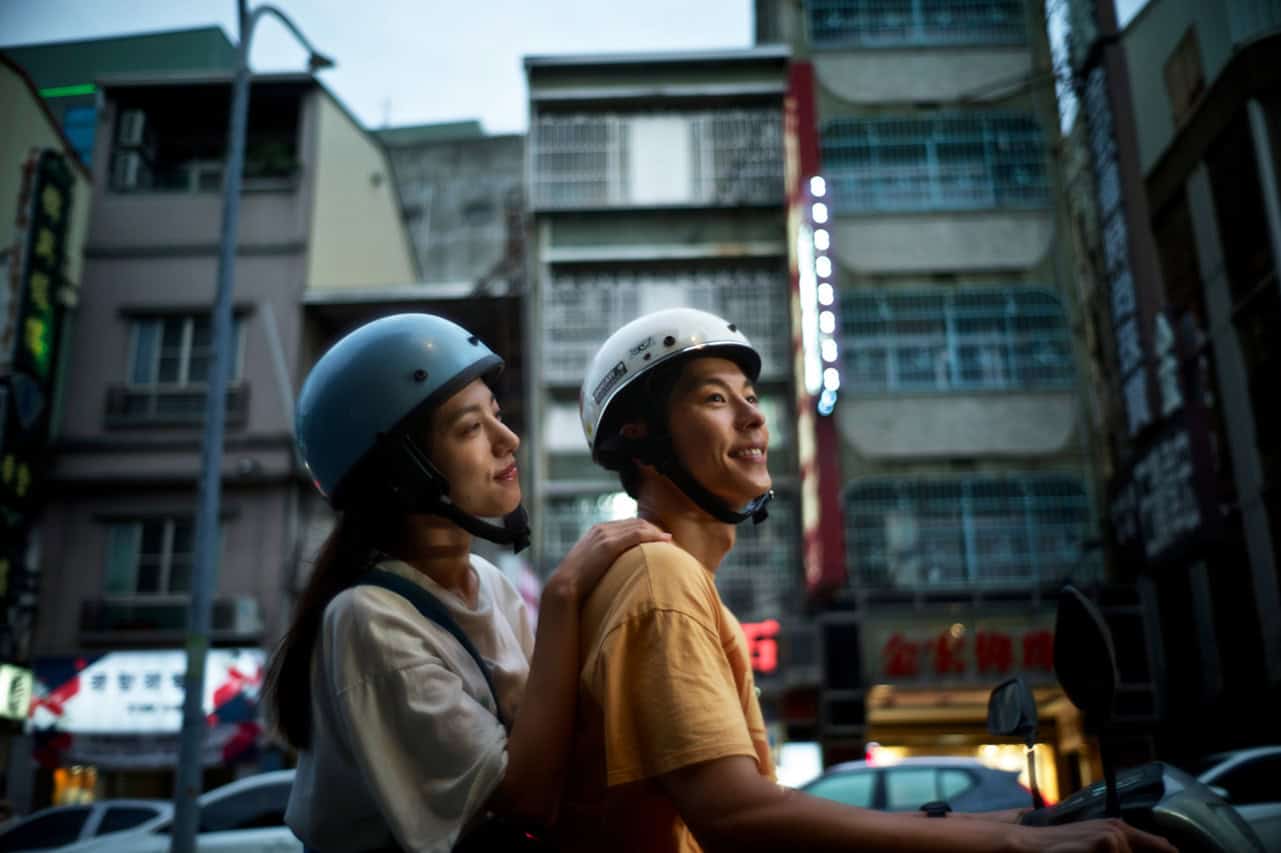
Michihito Fujii attempts an interesting experiment with an unusual mix of romantic teen drama, coming-of-age, travelogue, past and present, set in Taiwan and Japan, alternating both languages. The episodic structure of the film utilizes a series of flashbacks that gradually reveal the past events, some generated by conversations that Jimmy has with his occasional travel companions in his soul-searching itinerary that unfold at the same time. The two lines will eventually collide during the final act. It is an ambitious project as the fragmented nature of the narrative in these kind of flashback-rich films is often confusing and tedious too at times. However, in “18×2”, the pieces of the jigsaw fall in place rather effectively, completing nicely an elliptic arch of narrative. (Adriana Rosati)
3. Film Review: The Guest (2023) by Yeon Je-gwang
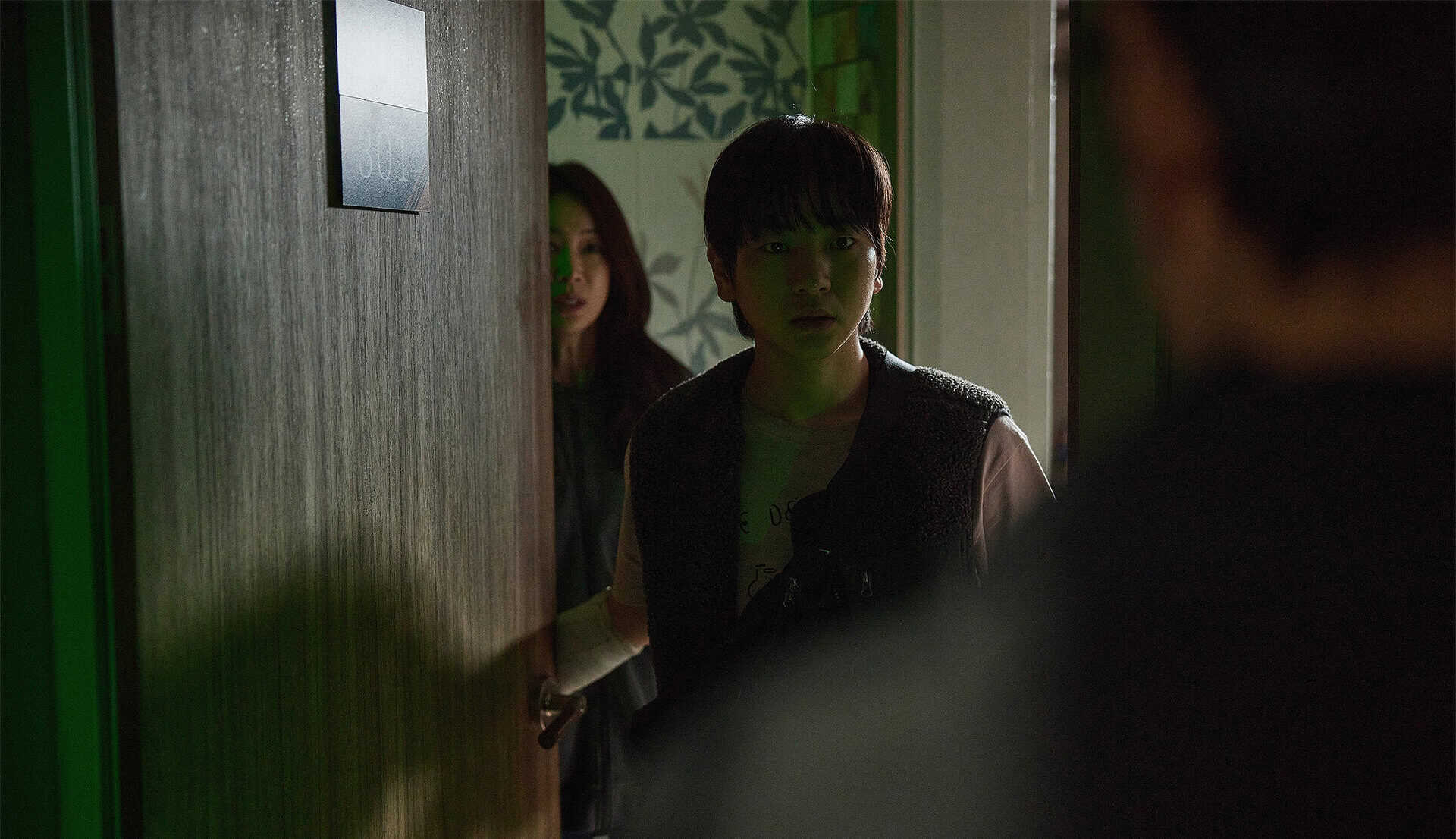
It's classic slasher fare: a restricted location, main characters lacking in many virtuous qualities, a scream queen victim and a dastardly villain so evil that they make the scumbag protagonists look like heroes in comparison. Slashers of days gone by, often navigated their moral pitfalls by cashing their chips into pace, gore and body count, and Yeon has clearly understood what makes them tick. There's a ruthlessness to how he's telling this story that keeps things moving at a frenzied pace, rarely stopping in one place to let the characters catch their breath. When the film does slow down, it does so to try and give you someone to root for, whether that be Oh's damsel in distress or the two young idiots in way over their heads. Yet this is where the film stumbles, never really justifying the actions of its cowardly concierges, despite efforts to show why they've taken on such a foul job. Even Oh fares badly, not getting nearly enough characterization beyond her endless suffering, leaving the overall picture the film paints as a fairly ugly one. (Simon Ramshaw)
4. Film Review: Trending Topic (2023) by Xin Yukun
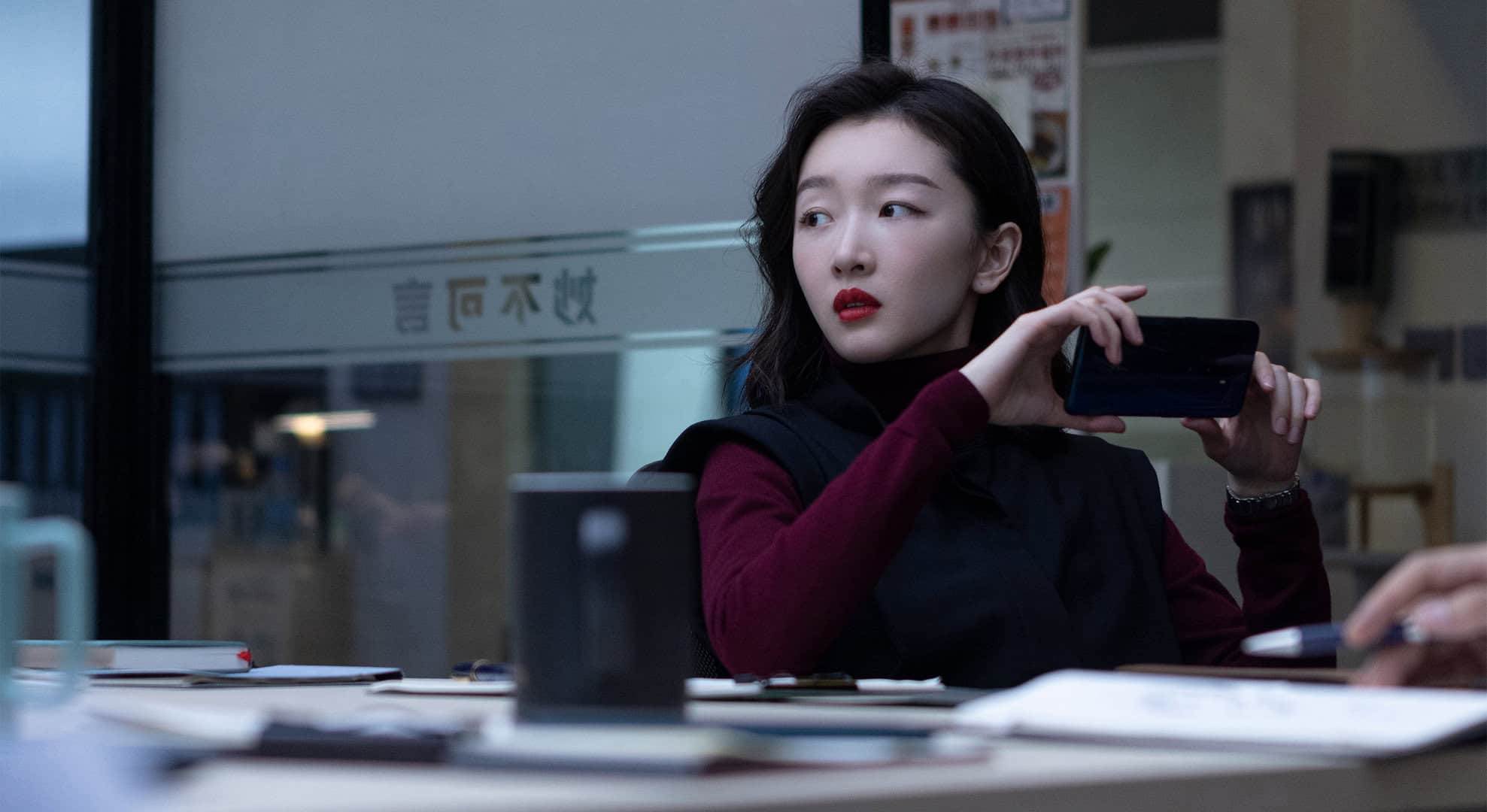
Though it nevertheless plays its ‘thriller' hand well it comes at too high a price for an effective pay-off. All too often there are no winners in this landscape of questionable truth, only losers who pay the ultimate price; though ‘Trending Topic's villainous organisation does receive its comeuppance, it feels tacked on, as inauthentic a victory as the thousands, if not millions, of dollars paid in hush money for the status quo to continue thriving and keep the shadows locked up firmly in the closet. (JC Cansdale-Cook)
5. Film Review: A Normal Family (2023) by Hur Jin-ho
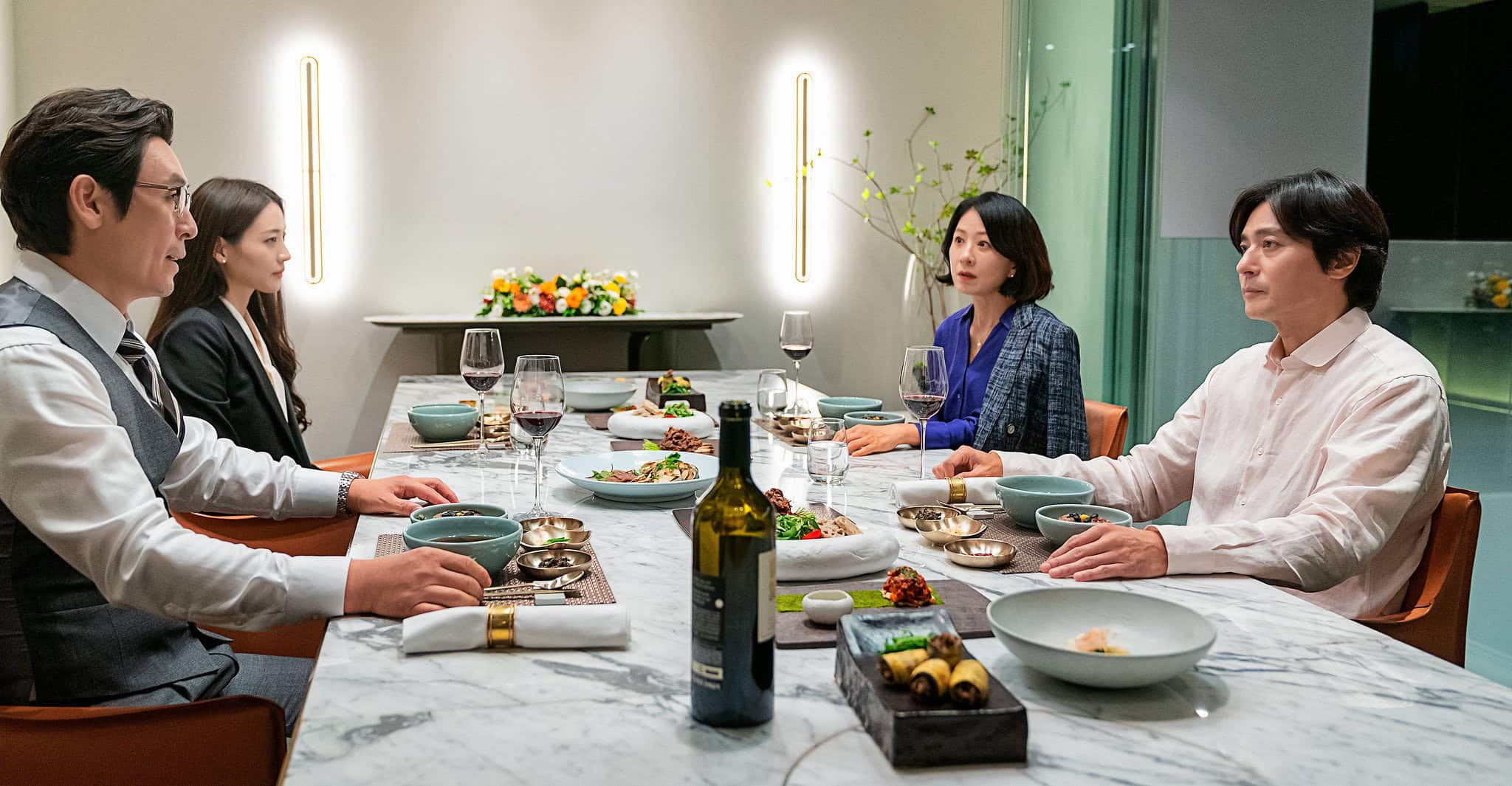
Hur Jin-ho, who had established his career with romantic movies like “Christmas in August”, and “One Fine Spring Day”, directs a movie that has no traces of romanticism, and, in fact, conveys a rather bleak vision of humanity. We are led to wonder, during the narration, about the “nature-vs-nurture” eternal dilemma and if a violent side may be hidden in all of us. But more than anything, the film challenges us, asking what our personal breaking point is and what would make us abandon our principles. (Adriana Rosati)
6. Film Review: Confetti (2023) by Naoya Fujita
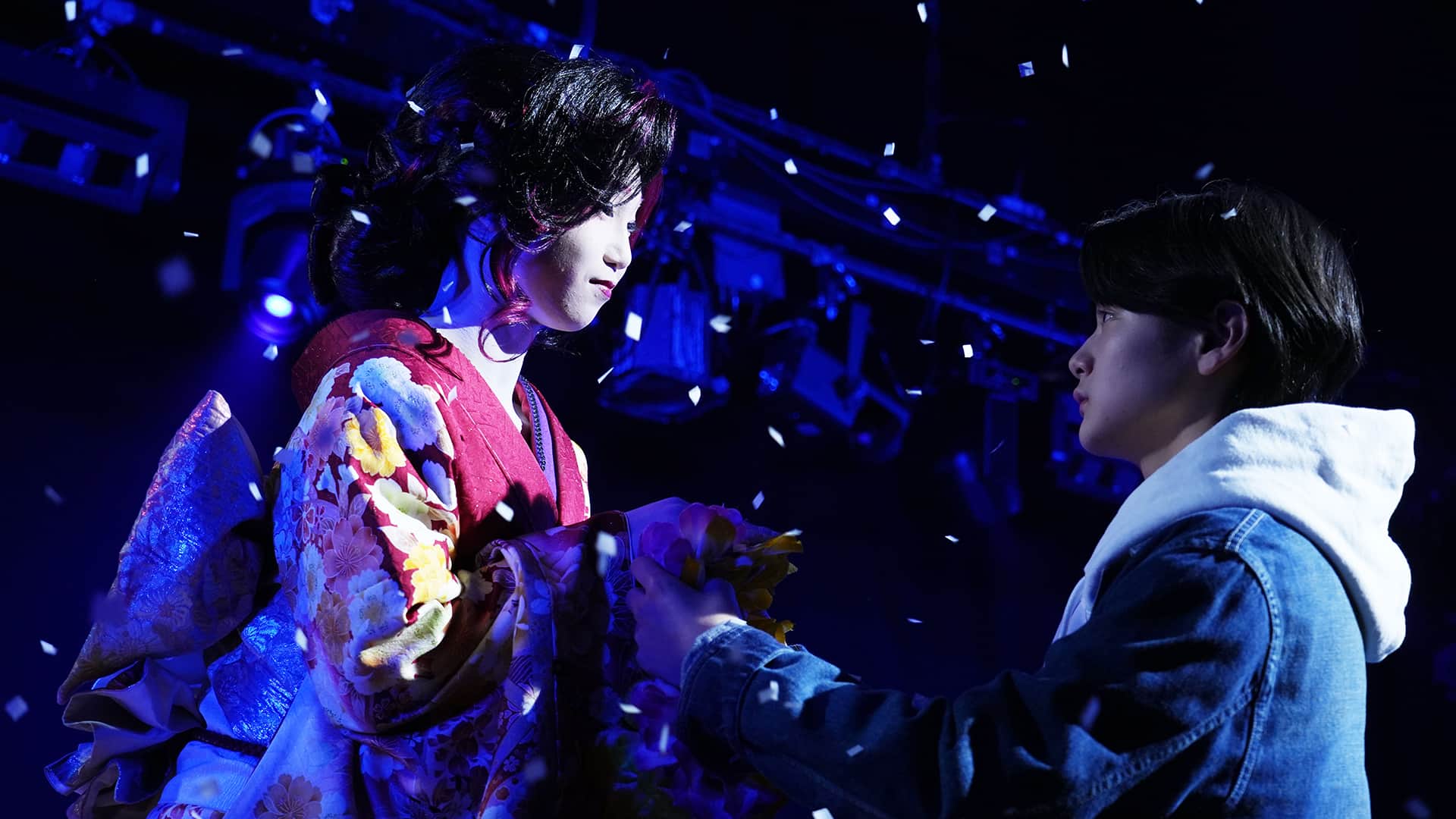
Bringing together the two worlds of theatre and high school, “Confetti” is a shimmering coming-of-age drama with classic elements of the genre. The young filmmaker's debut film was sponsored by the Japan Culture and Taishu Engeki Association and is also clearly influenced by Western patterns of directing. Therefore, it is revealing to see how Japanese and Western approaches of filmmaking interact. (Alexander Knoth)
7. Film Review: 12.12: The Day (2023) by Kim Seong-su
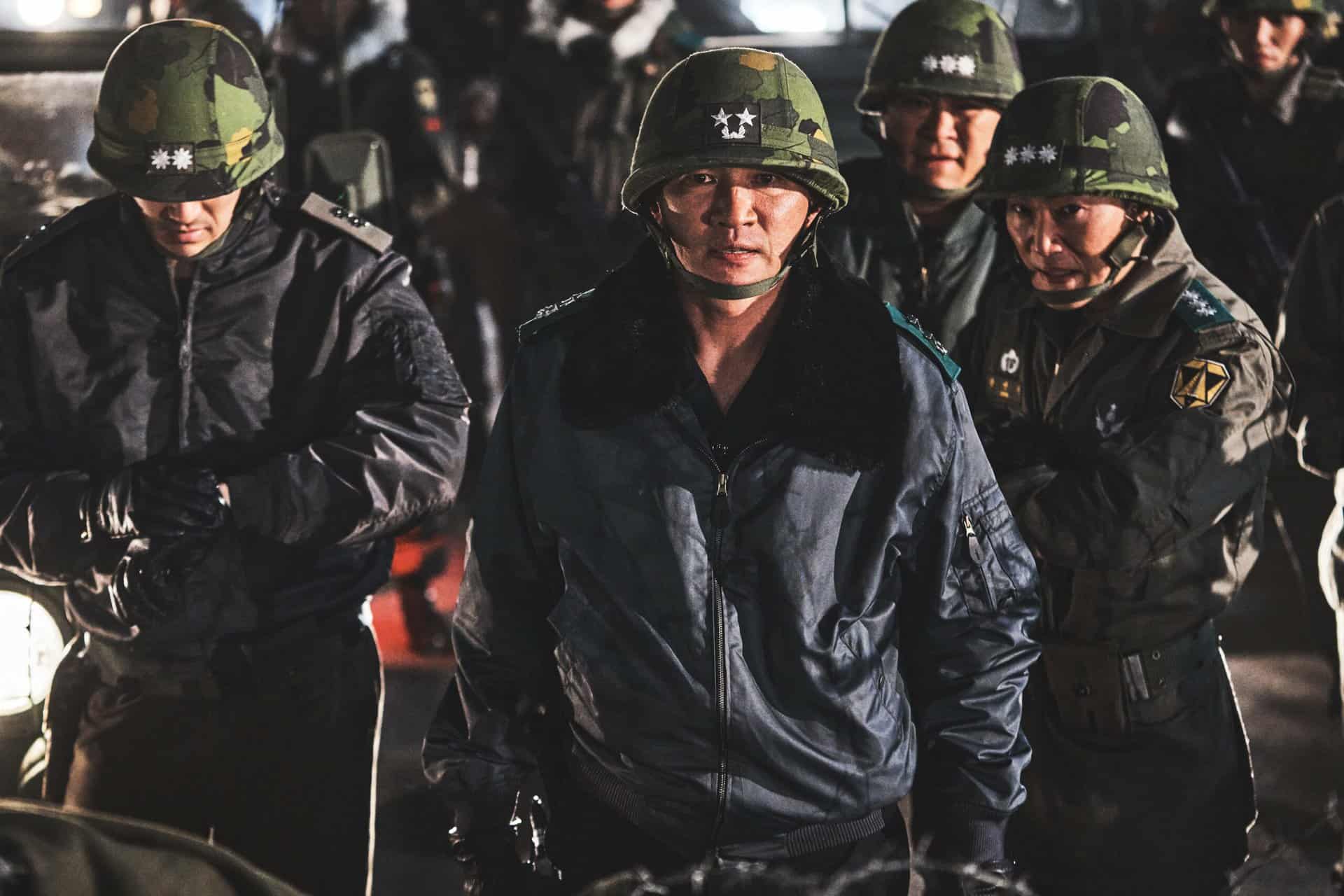
Kim Seong-su directs the movie in a style that will remind many of the TV-news style implemented frequently in Japanese cinema (“Shin Godzilla”, “The Yakuza Papers” etc), an approach that allows the events to unfold in more coherent and analytical fashion, but also frequently makes the narrative labyrinthic, particularly regarding the plethora of characters present. Both these aspects are rather evident here, although the tension and the agony about what will happen eventually overcome the issue in the most entertaining fashion. Perhaps a level lower than “Man Standing Next”, “12.12: The Day” still remains a captivating political thriller, benefitting the most by the story, the acting, and its production values. (Panos Kotzathanasis)
8. Film Review: Takano Tofu (2023) by Mitsuhiro Mihara
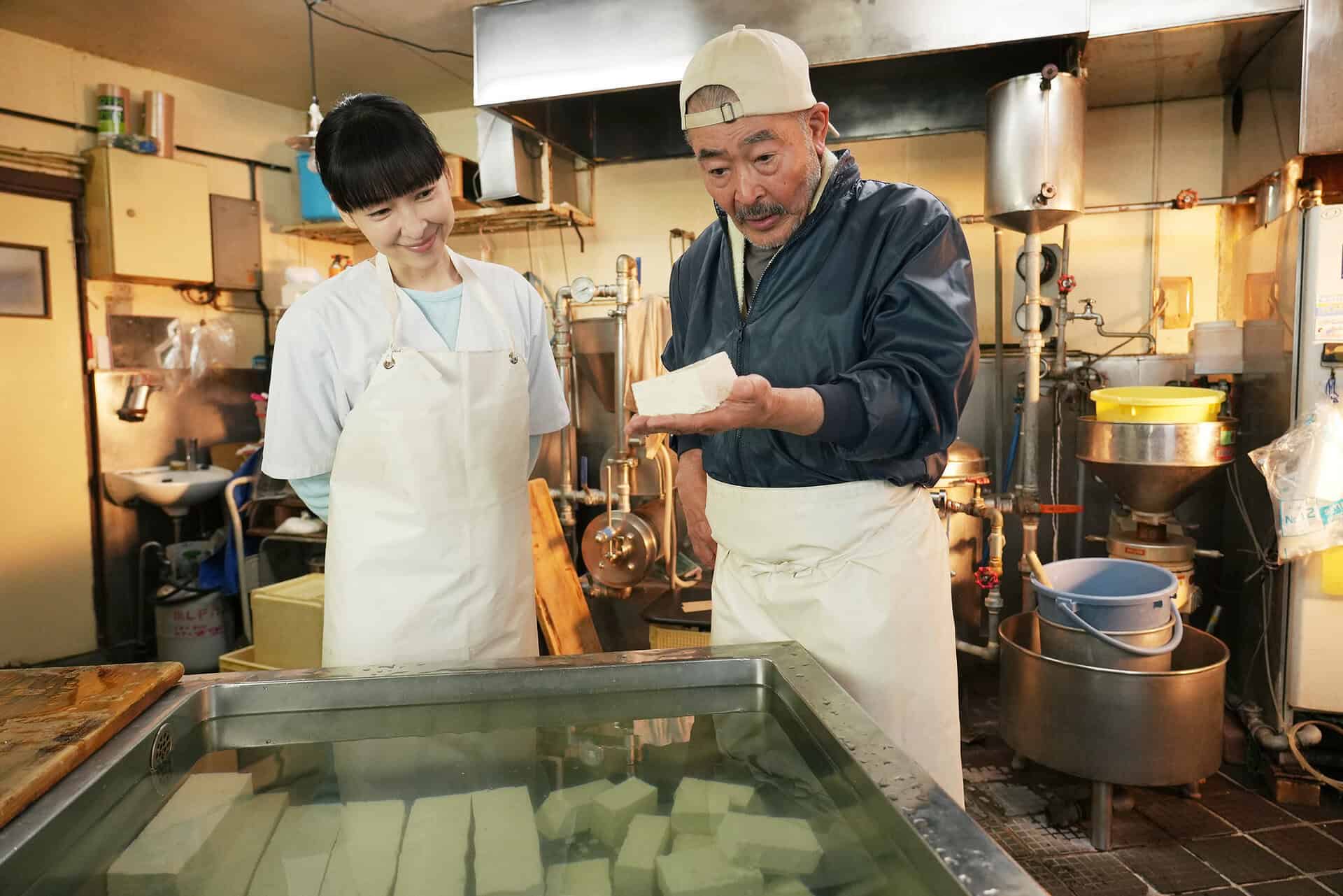
Nearly a docu-fiction at times, the film does a great job in portraying the love, dedication and discipline that go into a craft, complementing excellent innate skills. The process of making tofu every morning, in silent, almost like a dance routine, is mesmerising. Moreover, watching Tatsuo and Haru's ritual of sharing the first sip of hot tofu milk, resting at the end of the morning preparation, is the best snapshot of their relationship; deep love, and few words needed. All in all “Takano Tofu” is an enjoyable slow-paced and nostalgic film that is deeply reminiscent of the classic Japanese dramas of the past, and is soft and silky like Tatsuo's tofu. (Adriana Rosati)
9. Video Review: Panos Kotzathanasis talks about Alienoid: Return to the Future
On the occasion of the film screening at Udine Far East Film Festival 26, Panos Kotzathanasis talks about Alienoid: Return to the Future, its genre mashup and the many “loans”, the way Choi manages to combine everything in an audiovisually impressive package, the casting and acting, and the outstanding final scene. The video concludes with a comment about the rather low rating of (Asian) action movies on IMDB.
10. Film Review: Fly me to the Moon (2023) by Sasha Chuk
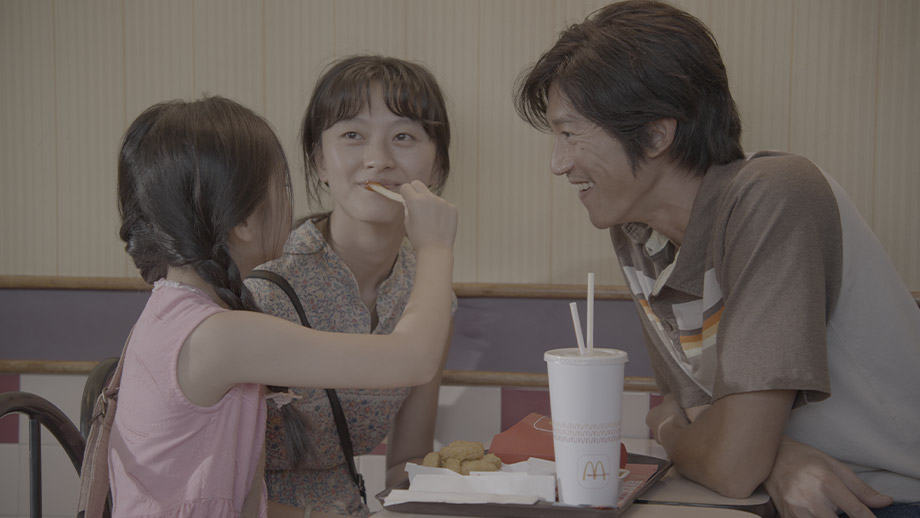
Through this last concept, the narrative begins focusing on how her relationship with her father shapes Yuan, both in positive and in negative ways. The positive ones include her learning to be independent, to survive on her own, and essentially being tough, while the negative ones include that she ends up looking for people that resemble her father's behavior and that she harbors a bitterness towards him that is definitely not helping with her life. Her relationship with her mother, which eventually becomes a long-distance one, and her sister, for whom she cares for deeply but also fosters a kind of dislike for her not sharing her feelings about her father, are also shaped likewise, in a rather thorough portrait of the main character which emerges as one of the film's best traits. (Panos Kotzathanasis)


